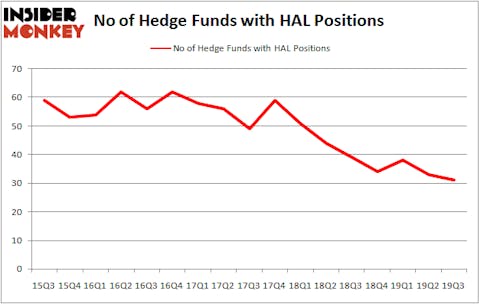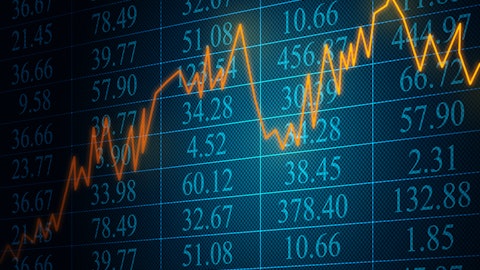It seems that the masses and most of the financial media hate hedge funds and what they do, but why is this hatred of hedge funds so prominent? At the end of the day, these asset management firms do not gamble the hard-earned money of the people who are on the edge of poverty. Truth be told, most hedge fund managers and other smaller players within this industry are very smart and skilled investors. Of course, they may also make wrong bets in some instances, but no one knows what the future holds and how market participants will react to the bountiful news that floods in each day. The Standard and Poor’s 500 Total Return Index ETFs returned approximately 27.5% in 2019 (through the end of November). Conversely, hedge funds’ top 20 large-cap stock picks generated a return of 37.4% during the same 11-month period, with the majority of these stock picks outperforming the broader market benchmark. Coincidence? It might happen to be so, but it is unlikely. Our research covering the last 18 years indicates that hedge funds’ consensus stock picks generate superior risk-adjusted returns. That’s why we believe it isn’t a waste of time to check out hedge fund sentiment before you invest in a stock like Halliburton Company (NYSE:HAL).
Halliburton Company (NYSE:HAL) investors should be aware of a decrease in support from the world’s most elite money managers lately. Our calculations also showed that HAL isn’t among the 30 most popular stocks among hedge funds (click for Q3 rankings and see the video below for Q2 rankings).

Video: Click the image to watch our video about the top 5 most popular hedge fund stocks.
To the average investor there are a multitude of methods investors use to grade their stock investments. Some of the most underrated methods are hedge fund and insider trading signals. Our experts have shown that, historically, those who follow the top picks of the top fund managers can outclass the S&P 500 by a superb margin (see the details here).
Unlike the largest US hedge funds that are convinced Dow will soar past 40,000 or the world’s most bearish hedge fund that’s more convinced than ever that a crash is coming, our long-short investment strategy doesn’t rely on bull or bear markets to deliver double digit returns. We only rely on the best performing hedge funds‘ buy/sell signals. We’re going to view the fresh hedge fund action surrounding Halliburton Company (NYSE:HAL).
How are hedge funds trading Halliburton Company (NYSE:HAL)?
At Q3’s end, a total of 31 of the hedge funds tracked by Insider Monkey were long this stock, a change of -6% from the second quarter of 2019. By comparison, 39 hedge funds held shares or bullish call options in HAL a year ago. With the smart money’s sentiment swirling, there exists an “upper tier” of noteworthy hedge fund managers who were boosting their stakes substantially (or already accumulated large positions).
Among these funds, Pzena Investment Management held the most valuable stake in Halliburton Company (NYSE:HAL), which was worth $503.2 million at the end of the third quarter. On the second spot was Fisher Asset Management which amassed $61.2 million worth of shares. Two Sigma Advisors, D E Shaw, and AQR Capital Management were also very fond of the stock, becoming one of the largest hedge fund holders of the company. In terms of the portfolio weights assigned to each position Pzena Investment Management allocated the biggest weight to Halliburton Company (NYSE:HAL), around 2.74% of its portfolio. Perella Weinberg Partners is also relatively very bullish on the stock, setting aside 0.59 percent of its 13F equity portfolio to HAL.
Due to the fact that Halliburton Company (NYSE:HAL) has witnessed a decline in interest from hedge fund managers, we can see that there is a sect of money managers who sold off their entire stakes by the end of the third quarter. Interestingly, Steve Cohen’s Point72 Asset Management sold off the biggest investment of the 750 funds watched by Insider Monkey, totaling an estimated $40.8 million in call options. Robert Pohly’s fund, Samlyn Capital, also cut its call options, about $20 million worth. These bearish behaviors are interesting, as total hedge fund interest was cut by 2 funds by the end of the third quarter.
Let’s also examine hedge fund activity in other stocks similar to Halliburton Company (NYSE:HAL). We will take a look at International Paper Company (NYSE:IP), Laboratory Corp. of America Holdings (NYSE:LH), Nasdaq, Inc. (NASDAQ:NDAQ), and Markel Corporation (NYSE:MKL). This group of stocks’ market valuations are closest to HAL’s market valuation.
| Ticker | No of HFs with positions | Total Value of HF Positions (x1000) | Change in HF Position |
|---|---|---|---|
| IP | 27 | 273248 | -4 |
| LH | 40 | 1435297 | 2 |
| NDAQ | 21 | 134209 | 1 |
| MKL | 28 | 1394617 | 3 |
| Average | 29 | 809343 | 0.5 |
View table here if you experience formatting issues.
As you can see these stocks had an average of 29 hedge funds with bullish positions and the average amount invested in these stocks was $809 million. That figure was $817 million in HAL’s case. Laboratory Corp. of America Holdings (NYSE:LH) is the most popular stock in this table. On the other hand Nasdaq, Inc. (NASDAQ:NDAQ) is the least popular one with only 21 bullish hedge fund positions. Halliburton Company (NYSE:HAL) is not the most popular stock in this group but hedge fund interest is still above average. Our calculations showed that top 20 most popular stocks among hedge funds returned 37.4% in 2019 through the end of November and outperformed the S&P 500 ETF (SPY) by 9.9 percentage points. Hedge funds were also right about betting on HAL as the stock returned 11.4% during the fourth quarter (through the end of November) and outperformed the market. Hedge funds were rewarded for their relative bullishness.
Disclosure: None. This article was originally published at Insider Monkey.






